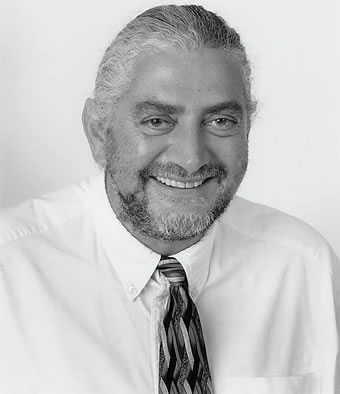
Agamemnon Epenetos
SUMMARY
Agamemnon Epenetos qualified in medicine from Glasgow University, Scotland in 1973 and subsequently specialized in Medical Oncology at St. Bartholomew's Hospital, London where he held an Honorary Consultant appointment in Medical Oncology.
He has been a practicing Oncologist and Cancer Researcher over the last 30 years. He was, until recently, a visiting Professor at Imperial College London. He has published widely on novel cancer therapies and has received much international recognition.
Agamemnon has more than 20 years of experience as a biopharmaceutical industry executive. He founded (1988) and served (1990- 2001) as Chairman and R&D Director of Antisoma plc, an oncology-focused biotechnology company listed on the London Stock Exchange and now trading as Sarossa plc (sarossaplc.com). He co-founded (2001) and served as Chairman (2001-2004) of Lipoxen plc, a drug delivery and vaccine company listed on the AIM Market ( and now trading on NASDAQ as Xenetic Biosciences (www.xeneticbio.com). He also founded (2004) and served as President and CEO (2004-2007) of Somanta Inc. a US cancer therapeutics company listed on the USA OTC/BB. Somanta was acquired in 2007 by Access Pharma Inc., a cancer therapeutics company now trading on NASDAQ as Abeona Therapeutics (www.abeonatherapeutics.com). He co-founded Trojantec Ltd and Alexis Biotech Ltd cancer therapeutic companies, which unfortunately ceased business.
He founded and is chairing a private company Lifeline (www.lifeline.com.cy) a stem cell storage company developing regenerative medicine cell products.
The Harley Street Clinic,
35 Weymouth Street,
London, W1G 8BJ, UK
PRESENT APPOINTMENTS
Clinical
September 1998 - present:
Consultant in Clinical Oncology, The Harley Street Cancer Clinic, Harley Street, London, UK
Biotech
1999 - present:
Chairman of Lifeline Biotech Ltd (www.lifeline.com.cy)
RESEARCH & STUDIES
In parallel with his laboratory research and drug development activities, Agamemnon is a practicing medical oncologist. He is interested in giving the best possible cancer treatment combined with the best possible overall holistic care of the patient.
A sample of his contributions to biomedical research include the following:
British Journal of Cancer 1982, 46: 1
In this study, it was demonstrated in a preclinical model that radiolabelled monoclonal antibodies could selectively localise in vivo to tumours.
The Lancet 1982, ii : 1004
In this study, it was shown that monoclonal antibodies could detect single tumour cells among other normal tissues.
The Lancet 1982, ii: 999
In this study it was shown that radiolabeled monoclonal antibodies could selectively localise in vivo to primary and metastatic lesions in patients with cancer.
The Lancet, 1984, i, 1441
In this study it was shown that radiolabeled monoclonal antibodies could be used therapeutically in patients with cancer.
British Medical Journal, 1985, 290, 1463
In this study, it was shown that antibodies directed against Growth Factors and their Receptors such as EGFR could produce a therapeutic benefit in patients with cancer.
Br. J. Cancer 2002, 86, 1336-1342
Blood 103(5):1791-1795
These studies demonstrated that by manipulating HLA class I peptide complexes, antiviral and anticancer responses could be generated in vitro and in vivo.
J Clin. Oncol. 2006 Feb 1;24 (4):571-8
This study was described as well-designed randomized study in patients with ovarian cancer in complete clinical remission and represented a new opportunity for progress.
AACR 2008 abstract # 5283
This study demonstrated that the Notch/Numb signaling is deregulated in breast cancer stem cells and that the development of TR4, a Notch inhibitor, could eliminate breast cancer stem cells in vivo in an animal model.
BMC Cancer 2012, Aug 3, 12:388
This study has demonstrated that the generation of a selective cytotoxic protein against p53 mutated cancers could lead to eradication of P53 mutated tumours.
ASCO Annual Meeting 2020 ,May 29-June 1 abstract 17601
This work entitled ‘Tumor response to a mastermind inhibitor protein’ was an innovative molecular imaging clinical ‘phase I/II’ assessing biodistribution, PK, PD, mode of action , toxicity and efficacy of a novel Mastermind inhibitor prior to entering the clinic.